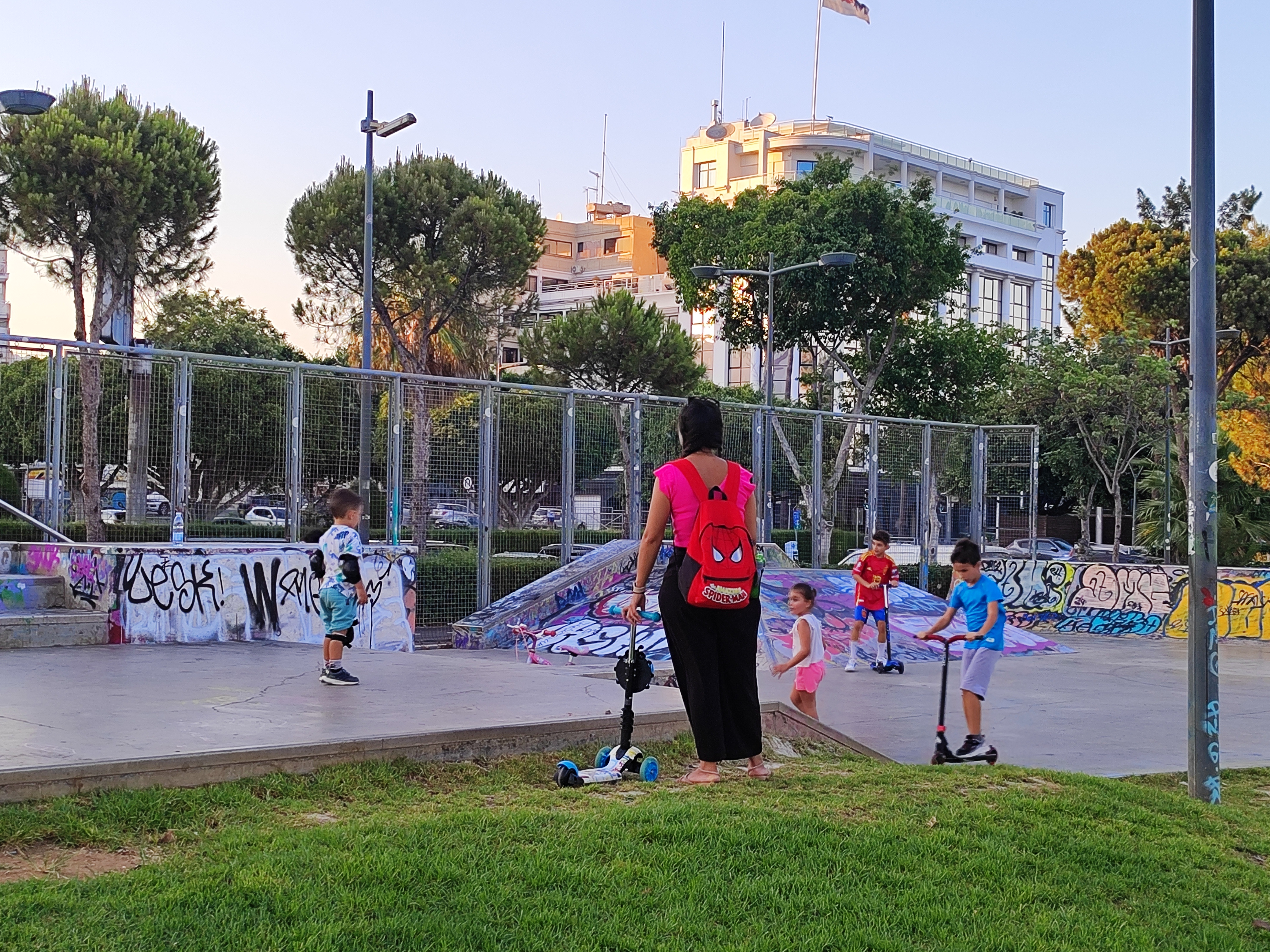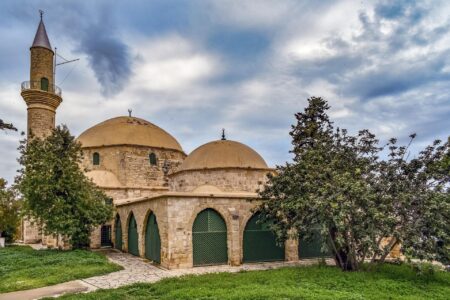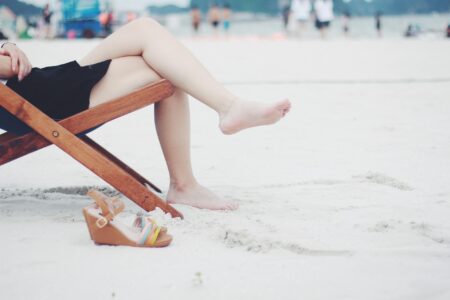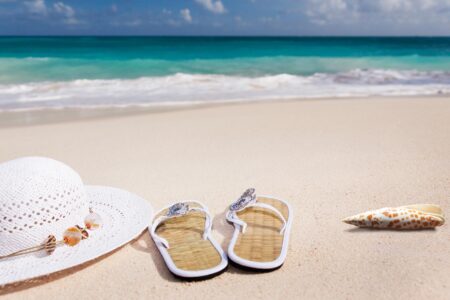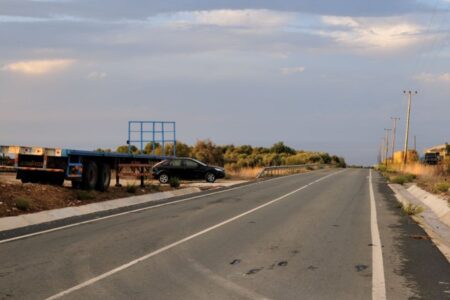Moving to Cyprus with your family is a step that can significantly change your life, opening up new opportunities for development and enjoyment of the Mediterranean lifestyle for you and your children. Cyprus is not only a place with a wonderful climate and rich cultural history but also a country that offers a high level of safety, quality education, and accessible healthcare.
For many families, Cyprus becomes an ideal place to move to, thanks to its convenient tax system, a variety of educational institutions, and developed infrastructure for families with children. However, like any major life change, a successful move requires careful preparation and knowledge of local specifics.
In this guide, we will cover key aspects to consider when planning a move to Cyprus with children, from choosing a school to finding housing and integrating into the local community. We will also discuss issues related to visas, healthcare, and other important aspects of life on the island to help you prepare for this important step.
Contents
Visa Aspects for Russian Citizens
For Russian citizens wishing to move to Cyprus, it is important to understand the various visa requirements and procedures for obtaining a residence permit. Let’s consider the main options:
Short-term Visa (National Tourist Visa)
The national tourist visa allows Russian citizens to stay in Cyprus for up to 90 days within any 180-day period. This type of visa is intended for short stays and does not grant the right to long-term residence or work on the island. For more details on how to fly to Cyprus from Russia in 2024.
Visitor Visa (Temporary Residence Permit, Pink Slip)
For long-term residence in Cyprus, Russian citizens need to obtain a temporary residence permit, known as a Visitor Visa, which allows legal residence on the island for up to a year with the possibility of annual renewal. This status is suitable for those planning to stay in Cyprus for an extended period, such as for work, study, or family reunification. However, with this type of visa, you can only work for a company located outside of Cyprus. The source of income must be outside the Republic of Cyprus. However, you can open your own company in Cyprus and receive dividends but not be employed by it.
Permanent Residence Permit (PRP)
Permanent residence (PRP) can be obtained through an investment program. For this, you need to invest at least €300,000 + VAT in new real estate in Cyprus. However, it is important to note that applying for PRP in itself does not grant the right to live in Cyprus. To legally reside on the island while waiting for your PRP approval, you first need to apply for a Visitor Visa. After applying for it, you can legally live in Cyprus and wait for the approval of your PRP application.
For more detailed information on visa procedures and residence permits in Cyprus for Russian citizens, we recommend checking out our articles on our website: Visas to Cyprus for Russians and Residence Permit in Cyprus. These resources will help you understand the details and prepare all the necessary documents for a successful move.
Education for Children in Cyprus
Education is one of the key factors that families consider when moving to Cyprus. The island offers several options for children’s education, including public schools, international schools, and private educational institutions.
Public Schools
Public schools in Cyprus provide free education in Greek. This can be a great opportunity for your children to learn the local language and integrate into Cypriot society. However, if your children do not speak Greek, an adaptation period may be necessary initially. Public schools follow the national curriculum of Cyprus, which is similar to the programs of other European Union countries.
International Schools
International schools in Cyprus are a popular choice among expats. They offer education in English and follow various international curricula, such as the British, American, or International Baccalaureate (IB) programs. The advantage of international schools lies in the familiar language of instruction and globally recognized education, making them an attractive option for families who might relocate to another country in the future.
The cost of education in international schools can be significant, so it’s essential to factor this into your budget planning. Some employers provide compensation or assistance with tuition fees at such schools, which can significantly ease the financial burden.
Private Educational Institutions
Private schools in Cyprus also offer a wide range of educational programs in different languages, including English, Russian, and French. These schools often have smaller class sizes and a more individualized approach to teaching. Additionally, many private schools offer extracurricular activities such as sports, music, and art, contributing to the all-around development of the child.
Choosing Between Public and International Schools
When choosing a school, it’s important to consider not only the language barrier but also the curriculum you want for your children. If you plan to live in Cyprus long-term and want your children to fully integrate into Cypriot society, a public school might be a good option. However, if you prefer to maintain an educational system familiar to your child or plan to move to another country in the future, an international school may be the better choice.
In summary, choosing an educational institution in Cyprus depends on your personal preferences, future plans, and resources. It’s recommended to visit several schools, talk to teachers, and speak with other parents to make an informed decision. For more details about schools in Cyprus, refer to our article.
Healthcare and Social Services in Cyprus
When planning to move to Cyprus with children, one of the most important aspects is access to quality healthcare services. Cyprus has a well-developed healthcare system that includes both public and private medical facilities, making it an attractive place for families with children.
Public Healthcare Services
Cyprus has a public healthcare system that is funded through contributions to the social insurance system and is available to both Cypriot citizens and residents, including Russian citizens who have obtained a residence permit. Within this system, you can access a wide range of medical services, including consultations with general practitioners, inpatient, and outpatient treatment. However, it is worth noting that public healthcare services are predominantly provided in Greek, which may pose challenges for those who do not speak the language.
Private Healthcare Services
Private healthcare in Cyprus is highly valued for its quality and accessibility. Many expats prefer private clinics due to shorter waiting times, the availability of English-speaking staff, and the ability to choose their doctor. Private clinics offer a full range of medical services, from routine check-ups to complex surgical procedures.
Preschools and Childcare Services
Cyprus also has a developed system of preschools and other childcare services. There are numerous public and private preschools offering programs in various languages, including English and Russian. Public preschools are generally more affordable but may have limited availability and require proficiency in Greek. Private preschools offer more flexible conditions, including early development programs and extracurricular activities, but at a higher cost. For more information about preschools in Cyprus.
Health Insurance
For all residents of Cyprus, including expats, having health insurance is mandatory. EU citizens can use the European Health Insurance Card (EHIC), while citizens of other countries, including Russia, must obtain private health insurance. This insurance can cover both public and private medical services. Health insurance is crucial for covering unforeseen medical expenses, especially in the case of serious illnesses. It is also required for applying for a residence permit. The insurance policy needs to be renewed each year and submitted to the Department of Migration along with other documents for residence permit renewal.
Thus, the healthcare system and social services in Cyprus provide a high level of safety and comfort for families with children. The choice between public and private medical facilities depends on your preferences and financial capabilities.
Finding Housing in Cyprus
One of the most important aspects of moving to Cyprus with your family is finding suitable housing. The island offers a wide range of properties, including apartments, houses, and villas in various areas, each with its own characteristics and advantages.
Choosing a Neighborhood
When choosing a place to live in Cyprus, it’s important to consider your family’s priorities and needs. Some of the most popular areas among expats include:
- Limassol: A modern city with developed infrastructure, including international schools, shopping centers, and entertainment venues. Limassol attracts families with its dynamic atmosphere and wide employment opportunities, especially in finance, IT, and tourism.
- Larnaca: A quieter city with a lower population density, making it attractive to families seeking a peaceful life. Larnaca is also known for its sandy beaches and more affordable housing.
- Nicosia: The capital of Cyprus, offering a rich cultural experience and a variety of job opportunities. Nicosia is ideal for those who want to live in the center of business activity while enjoying the city’s historical atmosphere.
- Paphos: A historical and cultural center with picturesque views and affordable real estate. Paphos attracts families looking for a more relaxed and culturally rich lifestyle.
Each of these areas offers unique conditions and infrastructure, allowing you to choose the place that best suits your family’s needs.
Renting or Buying Property
When deciding between renting and buying property in Cyprus, several factors should be considered:
- Renting: Renting property offers flexibility and the opportunity to familiarize yourself with the area before committing to long-term residence. Rental rates in Cyprus vary depending on the location and type of property. Renting also relieves you of the need to deal with maintenance and repair issues.
- Buying: Purchasing property in Cyprus can be a good investment, especially considering the stable growth of the real estate market on the island. When buying property, you should consider additional costs, such as maintenance. If you plan to obtain permanent residency through investment, purchasing property worth at least €300,000 is a mandatory requirement.
Tips for Finding Family Housing
When looking for family housing in Cyprus, it’s important to consider the following:
- Safety of the Area: Check the safety level of the chosen area, availability of security, and the quality of the infrastructure.
- Proximity to Schools and Preschools: If you have children, ensure that there are schools, preschools, and development centers near your home.
- Access to Healthcare and Shopping Centers: Choose an area with convenient access to medical facilities, pharmacies, and supermarkets.
- Transport Accessibility: Evaluate the convenience of transport infrastructure, availability of public transport, and proximity to main roads.
These tips will help you choose the ideal home for comfortable living for your family in Cyprus.
Integration into the Local Community
Moving to Cyprus with your family is not just a logistical and financial process but also an important stage of social adaptation, especially for children. Successful integration into a new environment greatly eases the transition period and helps create a comfortable life in the new location.
Adapting Children to the New Environment
For children, moving to a new country can be challenging due to changes in surroundings, language, and social circles. It is important to help them adapt to their new life by supporting them at every step:
- Attending School: Starting at a new school can be a significant challenge. It is recommended to introduce your children to their future teachers and classmates in advance, visit the school, and discuss their expectations and fears. Many international schools in Cyprus offer adaptation programs for new students, which helps ease the process of adjusting to a new educational environment.
- Language Courses: If your children do not speak Greek or English, consider enrolling them in language courses. This will not only improve their communication skills but also boost their confidence in the new environment.
- Participation in Extracurricular Activities: Sports, music, art, and other extracurricular activities are excellent ways for children to make new friends and feel part of the community. Cyprus offers numerous clubs and groups for children of different ages, where they can develop their talents and interests.
Summer and Winter Leisure
Cyprus is known for its warm climate and diverse opportunities for outdoor activities. In the summer, families can enjoy beaches, water sports, and visit various cultural and historical attractions. In the winter, despite the lower temperatures, cultural institutions, museums, and many festivals and celebrations continue to operate, allowing families to stay active year-round.
Cultural Events and Leisure Activities
Cyprus is a culturally rich country that offers numerous events and celebrations throughout the year. Participating in such events helps families better understand local traditions and culture, as well as make new friends among locals and other expats. The island hosts various festivals, concerts, theater performances, and other cultural events that will interest both adults and children.
Participating in the Local Community
Integration into the local community is an important aspect of life in a new place. Participating in local holidays, volunteer programs, parent committees, and other social initiatives not only helps you make new acquaintances but also fosters a sense of belonging to the community. Cyprus has various clubs and interest groups that welcome new members, making the integration process easier.
These steps will help you and your children quickly settle into life in Cyprus and create a new, fulfilling, and comfortable life on this beautiful island.
Financial Aspects of Living in Cyprus
When planning to move to Cyprus with your family, it’s important to consider the financial aspects. Living on this island can be relatively affordable compared to other European countries, but it requires an understanding of the main expenses and tax regulations to avoid any unexpected surprises.
Cost of Living
The cost of living in Cyprus varies depending on the region and the standard of living you are accustomed to. Generally, the main expenses include:
- Housing: The cost of renting a home in Cyprus can vary significantly depending on the region. In major cities like Limassol and Nicosia, rent tends to be more expensive compared to quieter areas like Larnaca or Paphos. On average, renting a two-bedroom apartment can cost between €800 and €1,800 per month, depending on the location and condition of the property.
- Groceries and Household Expenses: Prices for groceries in Cyprus are similar to those in other European countries, although there is some seasonal variation in the cost of fresh fruits and vegetables. Buying local products is generally cheaper than imported ones. The average monthly food budget for a family of four can range from €600 to €1,200.
- Utilities and Transportation: Utilities such as electricity, water, and internet typically cost between €150 and €300 per month. The cost of gasoline and car maintenance can also significantly impact your budget, especially if you live in a remote area and rely on private transportation.
Taxes
Taxation in Cyprus is considered quite attractive for expats. The main points include:
- Income Tax: Personal income in Cyprus is taxed on a progressive scale. Income up to €19,500 is not taxed, making Cyprus advantageous for families with a moderate income level. For income above this threshold, tax rates range from 20% to 35%.
- Social Contributions: All employed individuals in Cyprus are required to make social insurance contributions, which include coverage for healthcare and pensions. Employers are also required to make contributions on behalf of their employees, ensuring social protection for all residents.
Financial Management
Proper financial management is crucial for a successful adaptation to life in Cyprus. This includes:
- Budget Planning: Create a detailed budget that accounts for all essential and additional expenses. Be sure to include unforeseen expenses, such as medical bills or car repairs.
- Banking Services: Opening a bank account in Cyprus is a necessary step for the convenience of financial transactions, including paying bills, receiving salaries, and other transactions.
Financial preparation and understanding the local economy will help ensure stability and comfort for your family after moving to Cyprus.
Moving to Cyprus with children is a complex but highly rewarding process that requires careful preparation and a thoughtful approach to every aspect of life. From visa and legal issues to choosing housing, education, and integrating into the local community—every detail matters.
This sunny island offers many advantages for families, including a warm climate, high level of safety, quality education, and healthcare, as well as a relatively low cost of living. However, to make the move as comfortable as possible and avoid potential challenges, it is important to prepare in advance and study all the features of life in Cyprus.
Budget planning, choosing the right neighborhood to live in, and preparing your children for a new school and cultural environment will help your family quickly adapt and start a new life in Cyprus with a positive outlook. Whether you plan to stay on the island for a short period or long term, this move can be the beginning of an exciting and prosperous chapter for you and your children.

